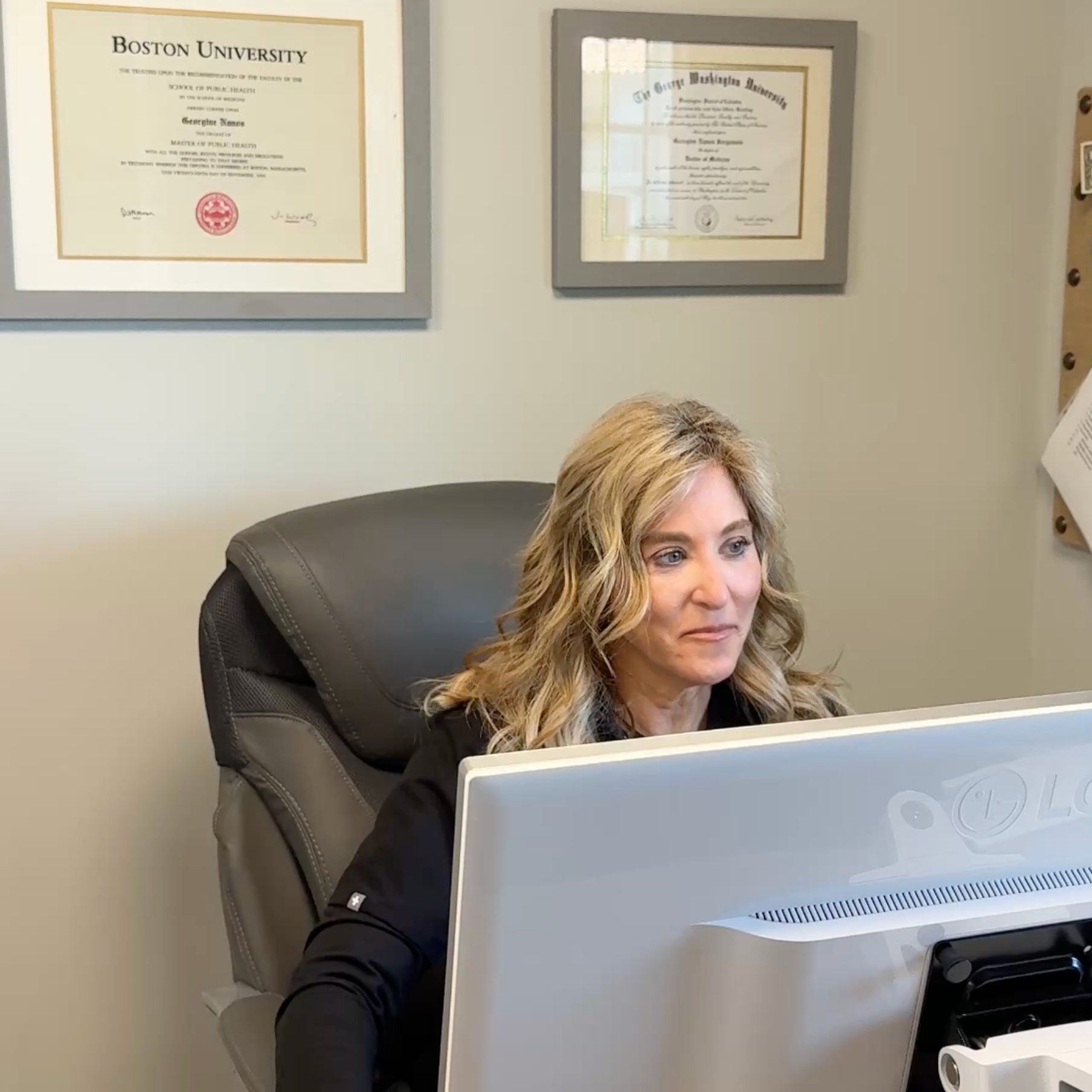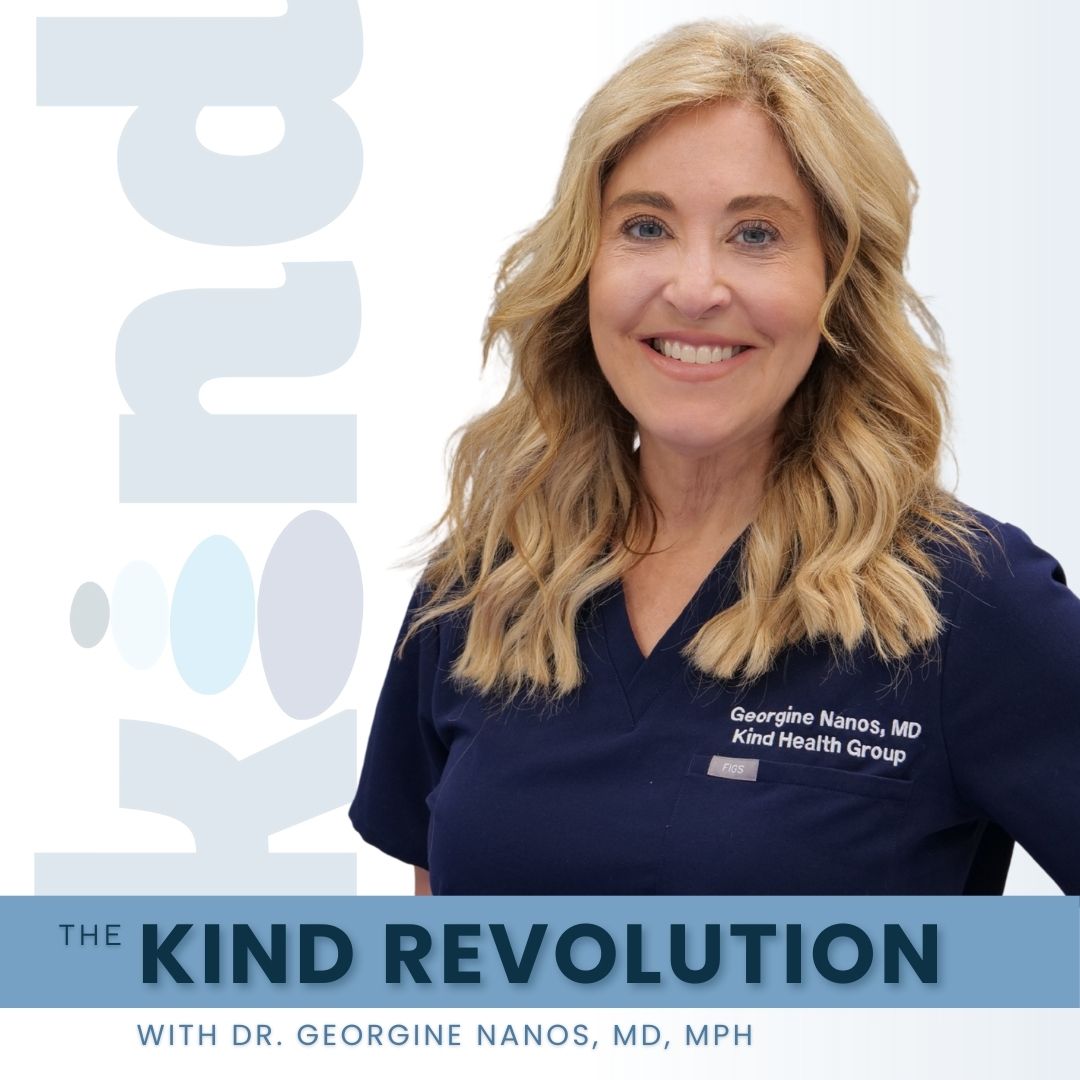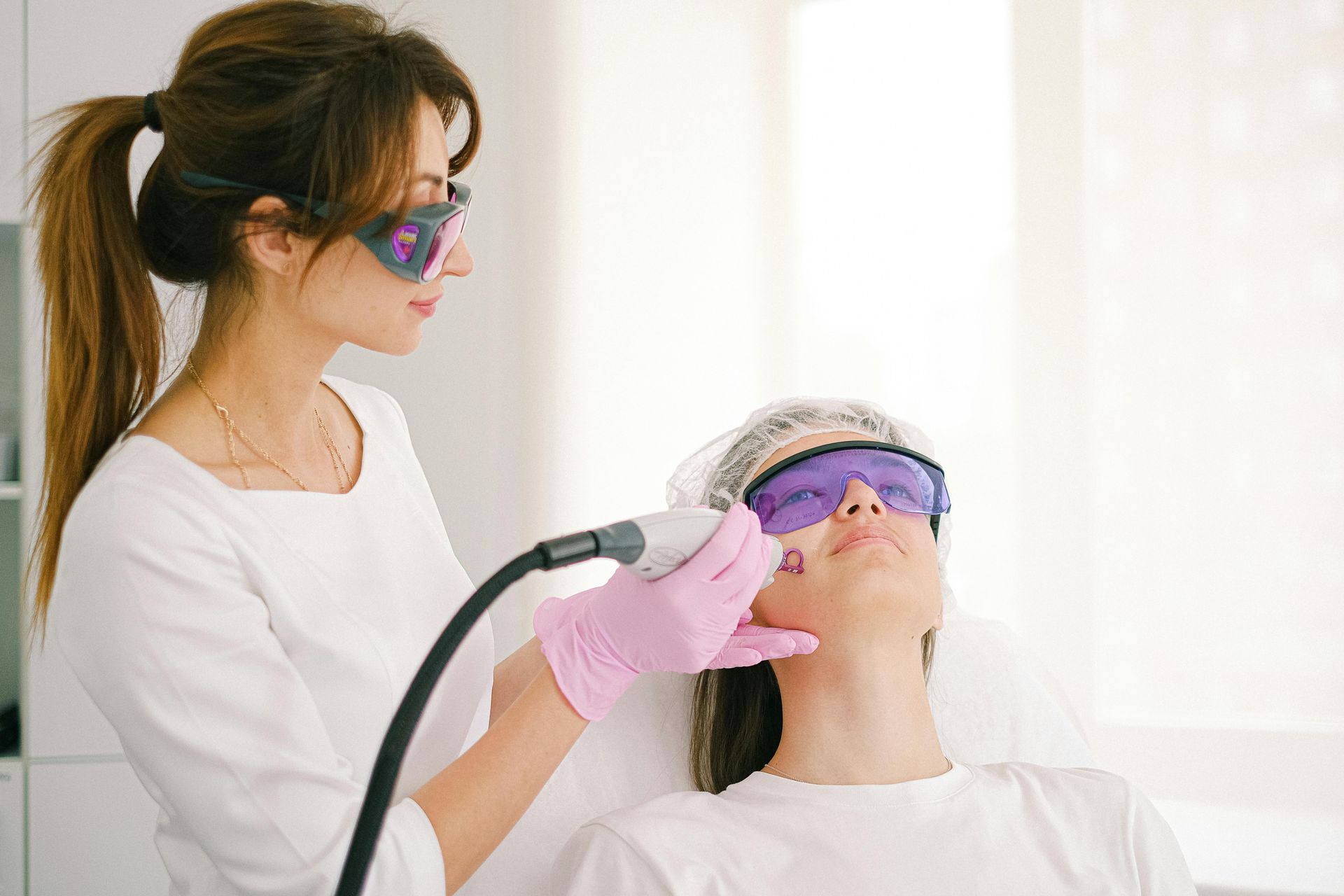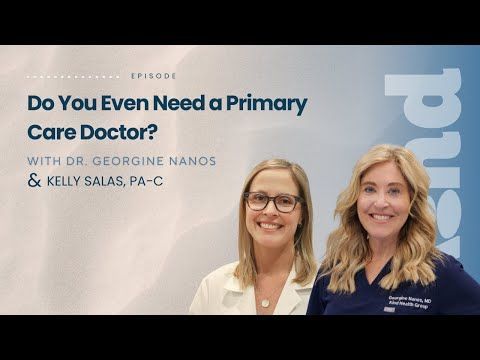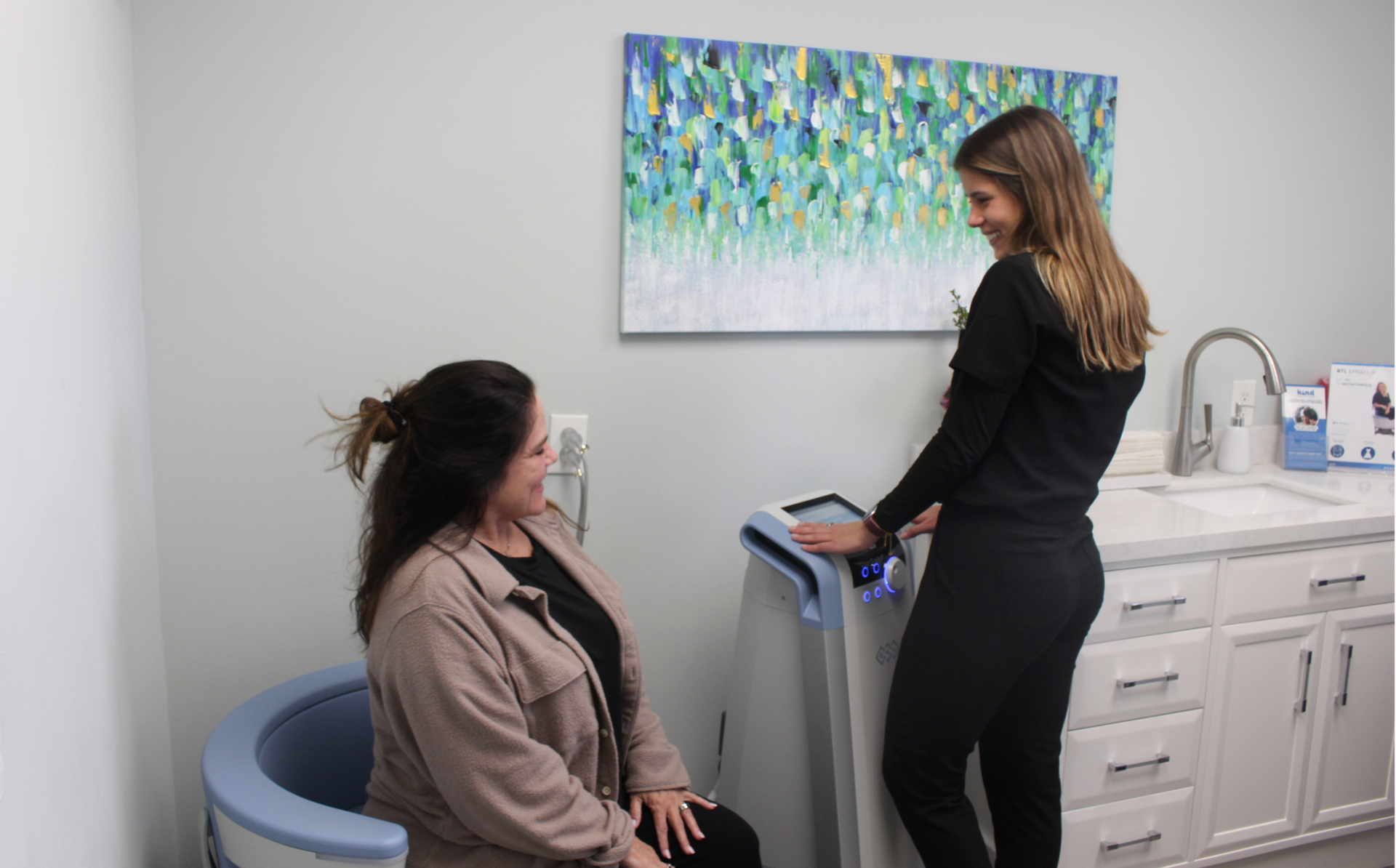Why Winter is the Ideal Season for Laser Treatments
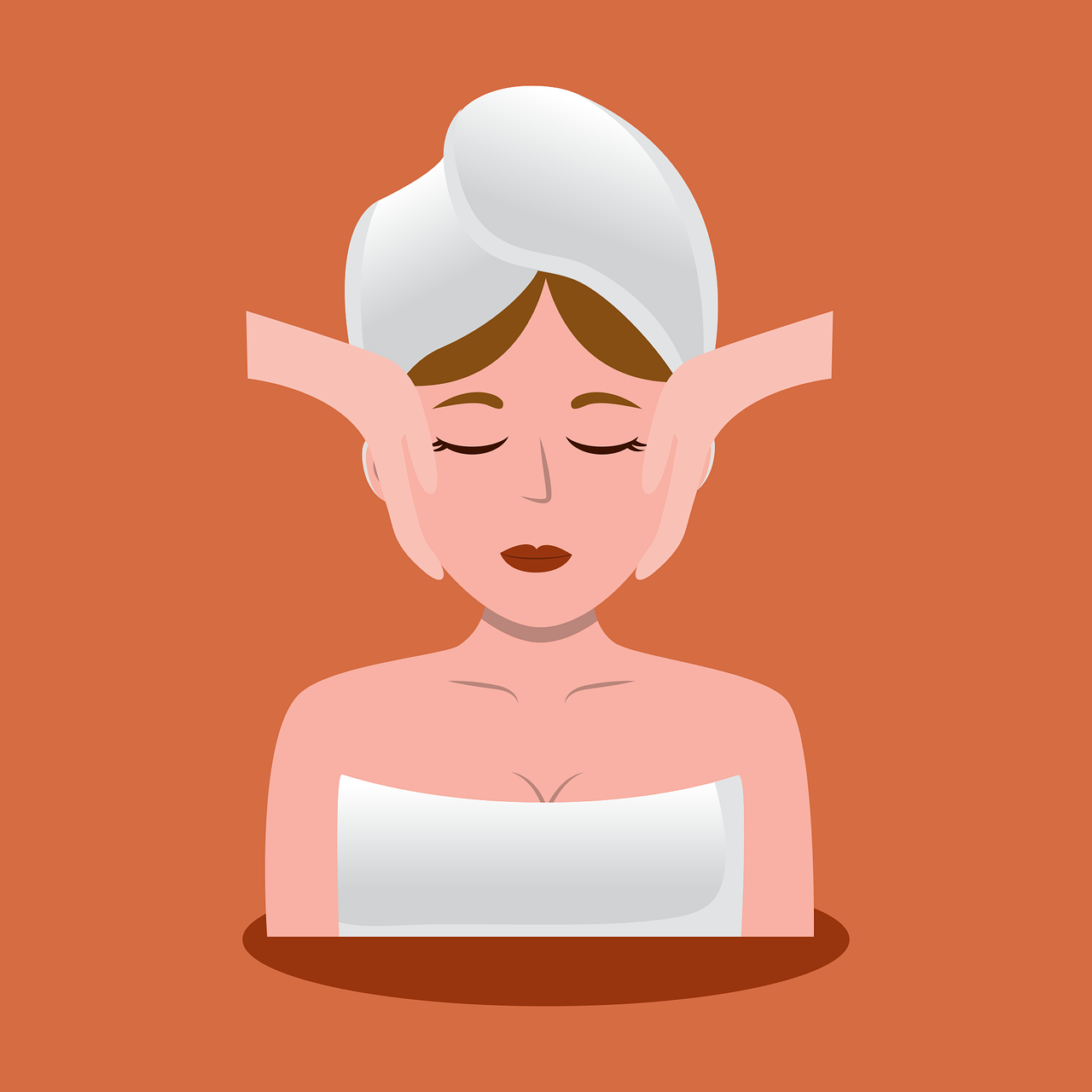
Laser treatments can be used to create fuller, healthier, and smoother-looking skin. Many people undergo laser skin treatments to improve their skin complexion, reverse the effects of aging, and remove unwanted blemishes.
While the procedure can produce great results, summer may not be the best time for laser therapy. Lasers use intense light beams that are focused on problem areas of the skin, which can cause redness, dryness, and other complications when exposed to excessive sunlight.
As a result, it is widely thought that winter is the best time to schedule your cosmetic procedure. This article will explore the key reasons why winter is the ideal time for laser skin treatments (and why it's best to avoid getting it done in summer).
Understanding Laser Treatments
Laser treatment helps to rejuvenate a person’s skin and fix any blemishes that may have appeared over time. A popular form of self-care, laser treatments are cutting-edge cosmetic procedures that use intense wavelengths of light to smooth the skin, boost collagen production, and produce a more even skin tone.
Some of the key benefits of laser treatments include reducing the appearance of wrinkles and revitalizing the skin’s natural glow, but there are special kinds of laser treatments that can target a variety of imperfections.
Here are some of the most popular therapies among patients at Kind Health Group:
- CO2 Laser Skin Resurfacing — Stimulates the natural production of collagen in the skin for a youthful and refreshed look.
- DEKA CO2 — State-of-the-art laser treatment therapy for acne scars, hyperpigmentation, wrinkles, and skin laxity.
- IPL (Intense Pulsed Light Therapy) — Treats hyperpigmentation for a more even skin tone, stimulating the skin's natural regeneration processes.
- Weekend Peel — An advanced treatment that offers a range of benefits, including smoother skin, improved texture, reduced wrinkles, and a more youthful appearance.
- CoolPeel — A non-invasive rejuvenation treatment that improves texture, reduces signs of aging, and minimizes sun damage.
If you’re looking to address concerns about your skin complexion, laser resurfacing treatment can be used to target the problem area. The procedure can produce softer and more youthful-looking skin, as well as remove pigmentation irregularities such as sun spots and unwanted scars.
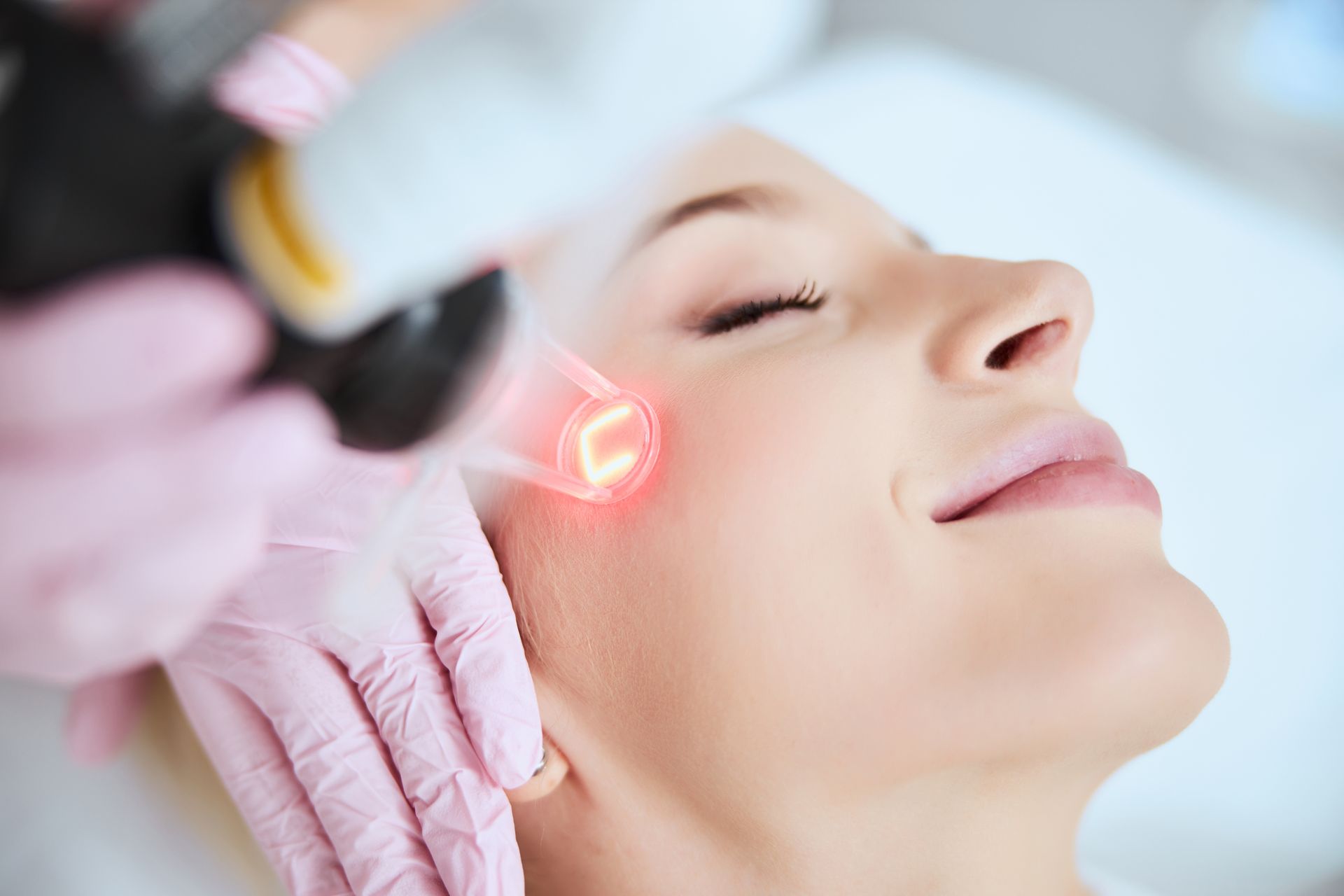
Benefits of Laser Treatments in Winter
Laser treatments use pulsating light beams to exfoliate damaged skin. While it can be the perfect remedy for treating a variety of imperfections, it’s important to remember that the healing process involves a recovery phase where the skin needs to be protected post-treatment.
It is especially important to avoid excessive UV exposure after receiving laser treatments. Extreme heat and sunlight can irritate the skin, cause redness, and delay the body’s natural regeneration process. This is a key reason why winter is the best time for laser treatment.
It can be difficult to avoid sun exposure during the summer months. In winter, cooler temperatures and less daylight provide the best conditions to help the skin recover, so dermatologists always recommend the winter season as the perfect time to schedule treatments.
Due to the natural recovery benefits of undergoing laser treatment in winter, most people begin the process between November and March. This helps to protect the sensitive area around the skin so that patients can get a healthy skin appearance and avoid the winter blues.
Considerations and Precautions
Summer, spring, winter, or fall, laser treatments are some of the most popular cosmetic procedures for maintaining the appearance of healthy skin. Since winter is the best time to undergo treatment, the following considerations and precautions can help you to achieve the best results this winter.
Knowing what the procedure involves
Intense light beams from a special laser are used to stimulate cellular responses in the outer layer of the skin. For example, in hair removal, the heat generated by the laser targets the hair follicles and inhibits their ability to grow hair for a sustained period. In skin rejuvenation treatments, laser energy is used to stimulate the skin’s production of collagen. This leads to firmer, smoother skin with improved texture and reduced wrinkles.
Receiving multiple treatments
Most laser treatments require multiple sessions to achieve the desired results. The number of sessions depends on the type of treatment, the condition being treated, and individual characteristics of a person’s skin.
For the best results, Kind Health Group recommends 3-6 treatments per month. Consistent treatment helps to keep the skin rejuvenated, as increased collagen stimulates natural regeneration for a healthier-looking tone.
Avoiding sun exposure
After a laser treatment session, it's essential to follow post-treatment care instructions provided by your dermatologist. This includes avoiding sun exposure as much as possible and protecting the treated area from irritation or trauma. Since it’s much more difficult to avoid sun exposure during summer, it is highly recommended that patients undergo laser treatment during winter.
Keeping dry skin hydrated
Since the treatment targets the skin with high levels of heat, a common after-effect is that the skin can become dry or irritated. Apply soothing skincare products such as moisturizer or lotion can help to optimize your results, as it can help to keep the skin hydrated and minimize the risk of complications.
Consulting a dermatologist
Different types of lasers target different components of the skin, such as hair follicles, blood vessels, or pigment cells. They can provide different healing properties depending on how they are focused on the skin.
To learn which laser treatments could stimulate healthier-looking skin for you this winter, it is recommended that you consult a dermatologist. Visit the Kind Health Group office in Encinitas, CA to receive a specialist skin examination before scheduling a laser treatment.
Who Would be the Ideal Candidate for Laser Treatment this Winter?
Laser treatment is one of the most effective ways to rejuvenate the skin during the winter months. If you are concerned about your skin complexion, laser resurfacing treatments can stimulate the body's natural regeneration process using intense pulses of light — creating a healthier and more even-looking tone.
Here are some of the main reasons why someone might want to undergo laser treatments.
Target wrinkles and rejuvenate aging skin
Treatments for skin rejuvenation can address various concerns such as wrinkles and fine lines. The laser stimulates the production of collagen which leads to firmer and smoother skin with improved elasticity. It can provide a noticeable improvement in overall skin health and appearance.
CO2 Laser Skin Resurfacing is one of the best treatments offered by Kind Health Group for producing younger-looking skin. It is a non-invasive surgery that is fully customizable, with three main options available to patients:
- Full Treatment — Comprehensive skin rejuvenation
- Weekend Peel — A subtle refresh with minimal downtime
- CoolPeel — Minimizes discomfort while delivering great results
Visit the office in Encinitas, CA for an in-depth consultation. The type and frequency of treatment may depend on the condition of your skin, so it’s important to get a full skin examination from a professional dermatologist.
Laser treatments for skin rejuvenation can address various concerns such as hyperpigmentation, and can help to fix uneven tone or rough texture.
IPL (Intense Pulsed Light) is one of the most common forms of therapy used to improve discoloration and redness from sun damage, age spots, and other pigmentation irregularities.
IPL is specially designed to target problem areas and improve the consistency of a person’s complexion — not only can it produce a more even tone, but it can also minimize acne scars and reduce the visibility of unnatural blemishes.
Remove unwanted hair with lasting results
Laser hair removal is a popular treatment for reducing or eliminating unwanted body hair on various parts of the body. It can help to reduce the risk of ingrown hairs compared to traditional hair removal methods like shaving or waxing, and it produces longer-lasting results.

A Final Word from Kind Health Group
Tanned skin, warm air, and cool drinks make the summer months the perfect time for many of life's best activities, but the increased sun exposure can cause complications when it comes to healing from laser treatments.
To help revitalize the skin post-treatment, it is recommended that patients schedule their laser treatments during the winter months so that they can receive fuller, younger, and healthier-looking skin without worrying about sensitive after-effects.
You can visit the Kind Health Group office in Encinitas, CA for a skin examination and learn which laser skin treatment can help to improve your overall skin health.
